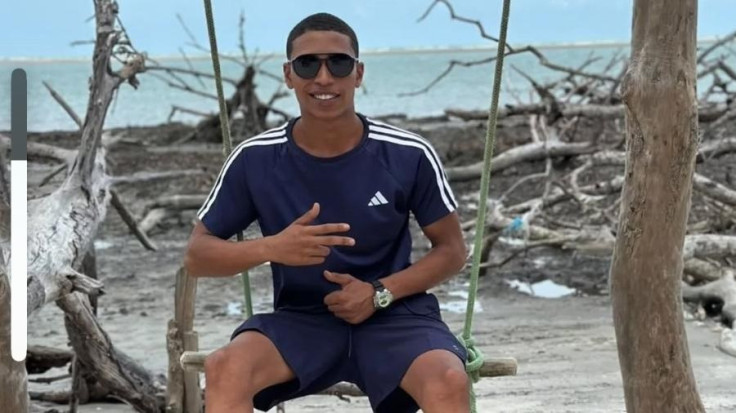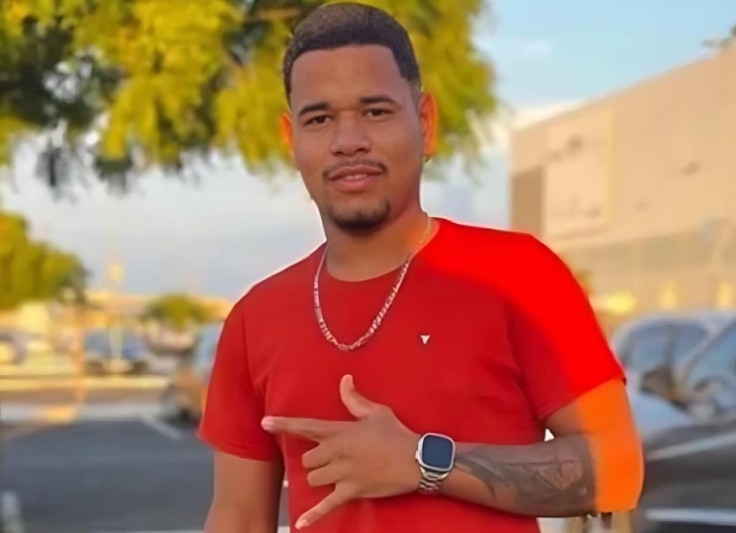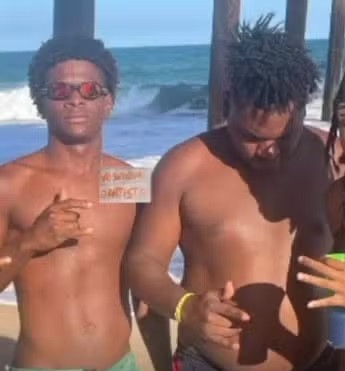
On January 6, 20-year-old Marcos Vinícius Alves Gonçalves was shot dead in Feira de Santana, a city in northeastern Bahia, Brazil. He became the latest victim in a string of killings authorities suspect involve criminal gangs and their monitoring of social media posts.
Investigators said two men approached Alves Gonçalves on the street and reviewed the contents of his phone. Police believe he may have been killed because of a photo he posted to social media which featured a hand gesture.
A month earlier, 16-year-old Henrique Marques de Jesus was vacationing with his father in Jericoacoara, a picturesque beach town in northeastern Brazil, when he too was killed by suspected gang members.
Local media reported that the young tourist from São Paulo had taken photos on his phone in which he made a hand gesture that could have sealed his fate. Local gangs operating in the area gained access to his phone and discovered photos in which Marques de Jesus displayed three fingers -- thumb, index, and middle -- on one hand. The teen was subsequently kidnapped by eight men, beaten, and killed, his body dumped in a nearby lagoon. Investigators believe the perpetrators may have associated the gesture with the Primeiro Comando da Capital (PCC), one of Brazil's largest criminal groups, and a rival of the Comando Vermelho (Red Command), Brazil's oldest drug gang which operates in the region.
As the influence of Brazilian criminal gangs expands into small towns across the country, their presence is reshaping community dynamics, instilling fear, and spreading violence.
The groups' efforts to assert control over local populations seems to have spread online, and investigators say that some people who post on social media are being targeted by the gangs who interpret hand gestures as symbols of rival factions.

Gangs expanding into Brazil's northeast
Criminal groups' expansion outside of major metropolitan areas like São Paulo and Rio de Janeiro is, in part, an effort to increase the flow of drugs from Brazil to European, African, and Asian markets, according to Rafael Alcadipani, an associate researcher at the Brazilian Forum on Public Security and a professor at the Fundação Getúlio Vargas.
Alcadipani told The Latin Times that their expansion in northeastern Brazil "is driven by the search of both the Comando Vermelho and PCC for new markets and alternative ways to export drugs abroad. This has a devastating impact on communities because it brings with it a series of highly delicate issues. As territories are controlled, conflicts arise over these areas, and this leads to a cascade of very harmful effects."
In Bahia, a state on Brazil's northern Atlantic coast, murders suspected to involve drug gangs and social media are worrying the local population. A 13-year-old girl in Bahia was executed by criminals after posting a video on social media in August -- apparently because of a hand gesture a man in the background of her video was making that they interpreted as a sign from a rival gang. And in October, two brothers aged 15 and 24 were killed near Arembepe Beach by suspected gang members. They too had earlier posted a photo on their social media which investigators believe was interpreted as a threat by the local Comando Vermelho (Red Command) gang.
Brazil's northeast in particular continues to suffer from wars between rival drug gangs, according to Carolina Ricardo, executive director of the Sou da Paz Institute, which analyzes security issues in the country.

She told The Latin Times: "There are places where violence and homicides increase because the territorial disputes result in numerous deaths. People find it difficult to move freely within the city. For example, if a person lives in an area controlled by one faction, they may be unable to visit family members living in a neighborhood controlled by a rival faction," she said.
Brazil's two largest criminal groups got their start in major urban areas before expanding to more rural parts of the country. The country's oldest active criminal organization, Comando Vermelho (Red Command), was founded in 1979 at the Ilha Grande prison, located in Angra dos Reis, Rio de Janeiro. The group is believed to have a presence in at least 21 of Brazil's 27 states and operates a decentralized hierarchy, with semi-autonomous leaders scattered across the country. The Primeiro Comando da Capital (PCC), formed in 1993 at the state of São Paulo's Taubaté Penitentiary, is far more organized than the Comando Vermelho, and operates like a corporation, including having an established constitution, organizational chart, and a clear set of goals and responsibilities for its members. Authorities estimate that the group currently has 40,000 members and generates approximately R$1 billion (USD $165 million) annually, primarily from drug trafficking. Other criminal factions, too, are active throughout the country.
Communities outside of Brazil's northeast are also experiencing reports of social media-related killings involving suspected gang members. In September, sisters Rayane Alves Porto, 25, and Rithiele Alves Porto, 28, were tortured and killed in the western Mato Grosso state. In a photo posted on social media, they were seen signing "I love you" in Brazilian Sign Language, a form of communication used by the deaf community. However, the gesture was interpreted as a symbol of support for a rival of a criminal gang active in the region.
Days after the sisters' murders, the gang allegedly responsible for the killings sent a message on WhatsApp, explicitly prohibiting the community from using a series of hand gestures.
"We are informing everyone that making these types of signs is prohibited, as they symbolize a group that supports our enemies. Anyone caught doing this, whether posting a photo, video, or making this type of apology for the rival faction, will suffer the consequences," the message read.
For Professor Alcadipani this type of intimidation highlights the government's failure to act against criminal groups. "It's evidence of the control exerted by these factions and the collapse of the state, its incompetence in regulating this reality. Ultimately, it's these groups that end up regulating people's lives," he said.
This type of fear-induced control may be influencing people's behaviour and limiting personal freedoms. Brazilian singer Duquesa recently decided to remove a music video for her single "Fuso" from audiovisual platforms. In one part of the video, she was seen gesturing the number three with her hands. After being alerted by fans to the potential danger, the artist deleted her video.
"In addition to territorial control, there's this identity control, so to speak," said Ricardo, the security analyst. "These are factions with strong ties to specific emblems, certain images, and this control is extremely damaging because it completely undermines the freedom of these territories and the autonomy of the communities."
According to Ricardo, combating criminal organizations requires deep intelligence work by public security authorities. Beyond capturing the leaders of the groups, it is essential to dismantle their financial cores by identifying businesses used to launder crime proceeds, effectively undermining their operations and power. She emphasized the importance of international cooperation in this effort.
"There must be strong connections with neighboring countries, as well as with Europe," said Ricardo. "I don't think it's a simple task, but it's the first step ... We need operations targeting the highest ranks of criminal hierarchies to achieve more significant impacts. Silent, medium-term operations are crucial, with thorough investigations involving other sectors, as I mentioned -- financial intelligence, the Public Prosecutor's Office -- all working together to support this preemptive investigation."
© 2025 Latin Times. All rights reserved. Do not reproduce without permission.




